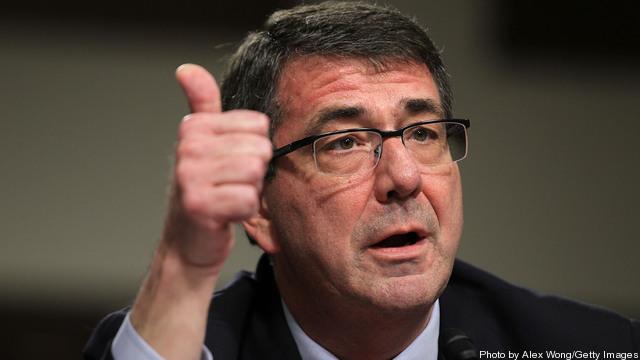Buying Culture Must Change, Lawmakers Tell Carter
Posted on
 Washington: The way the Defense Department does business is broken, and lawmakers want to know if DoD acquisition chief Ash Carter can fix it.
Washington: The way the Defense Department does business is broken, and lawmakers want to know if DoD acquisition chief Ash Carter can fix it.
That was the message Senate Armed Services Chairman Carl Levin and Ranking Member John McCain conveyed to Carter during his confirmation hearing yesterday. Carter has been pegged to replace Bill Lynn as the Pentagon’s No. 2 official.
Carter, who is expected to easily win confirmation, will take a larger role in overseeing a defense acquisition process where undisciplined buying practices have caused costs to spiral out of control on a number of major defense programs, according to both lawmakers.
Affordability “is not a goal anymore” in DOD, McCain railed during the hearing. This lackadaisical approach to how the department spends its money — part of which happened under Carter’s watch as acquisition chief — has simply become “business as usual,” McCain added.
That kind of mentality is so deeply ingrained into the department that “overcoming [those] cultural impediments” will be the biggest challenge that Carter will face as the new deputy defense secretary, he warned.
Carter admitted that a number of recent, big-ticket DoD programs were chock full of “extravagant expectations” that ended up being “a bridge to nowhere.”
Some of those programs got the ax today, as the Senate Appropriations defense subcommittee lowered the boom on the Joint Light Tactical Vehicle and the F-35 Joint Strike Fighter, as part of their version of the fiscal year 2012 defense spending bill.
But Carter also touted the slew of reforms initiated under his watch to try and fix the Pentagon’s buying practices. Those changes, he argued, have already made the process better.
But Levin said it did not matter how many new acquisition policies were introduced or how many times the rules have changed under Carter. Until that skewed culture in DoD acquisition remains intact, Levin said things will never change.
While these concerns about DoD are nothing new to long-time defense observers, yesterday’s call for reform was much more urgent compared to past years.
DoD is staring down the barrel of spending cuts of at least $500 billion over the next decade, with more cuts likely.
Currently the department is working to find ways to pay its share of the $1.2 trillion the Obama administration has tasked the Super Committee to cut in government spending across-the-board.
If the Super Committee can’t hit that $1.2 trillion number, it will be forced to slash another $600 billion from national security spending — half of which will come directly out of DoD’s pockets.
DoD is already considering options that have not been on the table “for decades” to save money, Carter told the Senate panel.
Subscribe to our newsletter
Promotions, new products and sales. Directly to your inbox.
